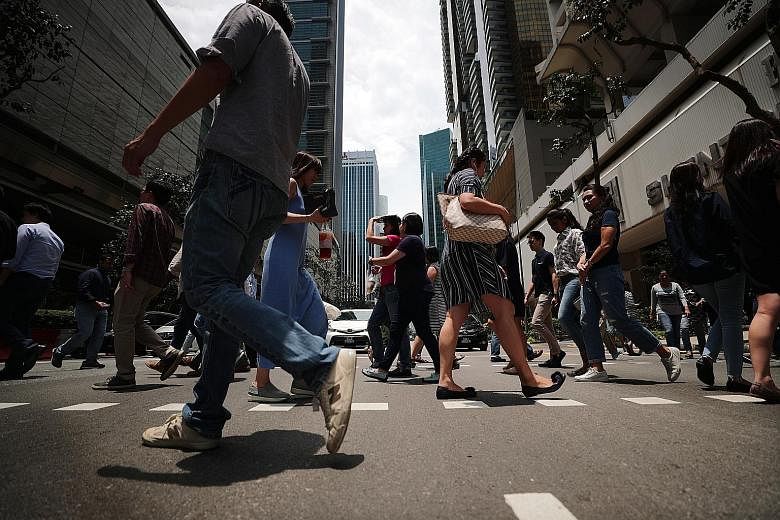Government pledges to help workers and firms adjust to the changing global economy took on more resonance yesterday with data showing that second-quarter growth fell to its slowest in a decade.
Trade and Industry Minister Chan Chun Sing said in a Facebook post that the country is dealing with longer-term shifts in supply chains and production patterns.
Its strategy is not to artificially boost demand in general but to help companies and workers adjust to new realities.
"We must, therefore, focus on our long-term fundamentals of building real and new capabilities, expanding into new markets and acquiring new skills," he said.
He added that the Government will continue to help businesses transform and workers acquire new skills to keep pace with the changes.
His comments came as Trade and Industry Ministry flash estimates showed the economy grew just 0.1 per cent in the second quarter over the same period last year, and down 3.4 per cent from the first three months of the year.
The poor numbers prompted economists to warn of a heightened possibility of a technical recession - or two consecutive quarters of slowdown - although Deputy Prime Minister Heng Swee Keat believes the country is not expecting a full-year recession at this point.
Manpower Minister Josephine Teo noted in a separate Facebook post that there are around 60,000 unfilled vacancies, half for professionals, managers, executives and technicians, in sectors like financial services, professional services and infocomm technology.
New and better jobs continue to emerge, and there is no shortage of programmes to support workers' transitions, she added.
Mr Chan noted in his post that the challenges now are different from those of the 1997 Asian financial crisis and the 2008 global financial crisis, when a sudden loss of confidence in markets triggered a sharp downturn in the economy here.
The value of trade is three times higher than Singapore's gross domestic product, so the economy here will be subject to uncertainties of the global investment climate and shifts in supply chains brought about by the turbulent trading environment, he added.
Mr Chan said Singapore is focused on attracting high-quality investments for the long term, adding that the investment pipeline shows that it is on the right track.
Mrs Teo's post noted that while industry and union leaders pay close attention to slowing growth, they are not in a state of panic.
"Most of them know that it is in the nature of business cycles," she said, adding that some systematically prepare for such times and become more flexible in the way they think and act when necessary.


